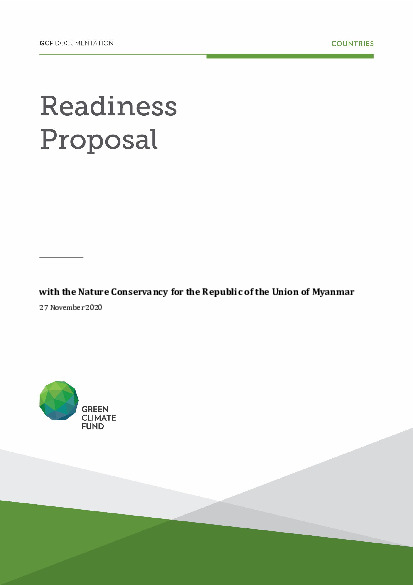Developing a Natural Resources Conservation and Management Strategy (NRCMS) for tackling climate change and development challenges in Myanmar

Developing a Natural Resources Conservation and Management Strategy (NRCMS) for tackling climate change and development challenges in Myanmar
Myanmar’s climate change policy and associated strategies recognize that the natural resources sector is critical to mitigating and adapting to climate change.
However, Myanmar’s NAPA recognizes stakeholders have limited capacity for planning, including cross sectoral planning.
Moreover, natural resource management institutions are missing opportunities to optimize action on climate change because of a lack of common vision.
Accordingly, the Myanmar Climate Change Masterplan aims to promote multi- partnership mechanisms to support and scale-up climate action in the natural resource sector. To support this, a national working committee on Natural Resources, Biodiversity and Cultural Heritage Conservation Working Committee (NRBC) has been established by the government.
To optimize the role of natural resource institutions in climate change action there is a need to:
- Improve coordination of climate change actions between natural resource institutions at national and regional level
- Accelerate the implementation of natural resource management actions in the context of climate change
- Catalyze investments in national and regional level readiness, including in Ecosystem based Approaches (EbA)
This project will enable the development of a natural resources conservation and management strategy (NRCMS); support the natural resource institutions working in Sagaing to identify priority actions aligned to the NRCMS and, make appropriate commitments to share information & implement EbA: and, build capacity of natural resource institutions to deliver integrated climate change action. The project will provide awareness and capacity building that enables national and sub-national stakeholders to seek public and private funding for EbA. In developing the NRCMS, ECD and TNC will incorporate elements that focus on disadvantaged, gender and youth issues and avoid harm to people and the environment.
The NRCMS will directly benefit government agencies in the forestry and energy sectors responsible for improving and implementing policies in support of Myanmar’s NDC. Other agencies in the agriculture, fisheries and livestock, transport and industry sectors are expected to benefit from the information sharing and coordination associated with the development of the NRCMS, leading to greater clarity about their role, plus specific commitments and improved guidelines for delivering natural climate solutions. The project will directly support the Sagaing regional government to step-down the national NRCMS to create a detailed plan for action on the ground.